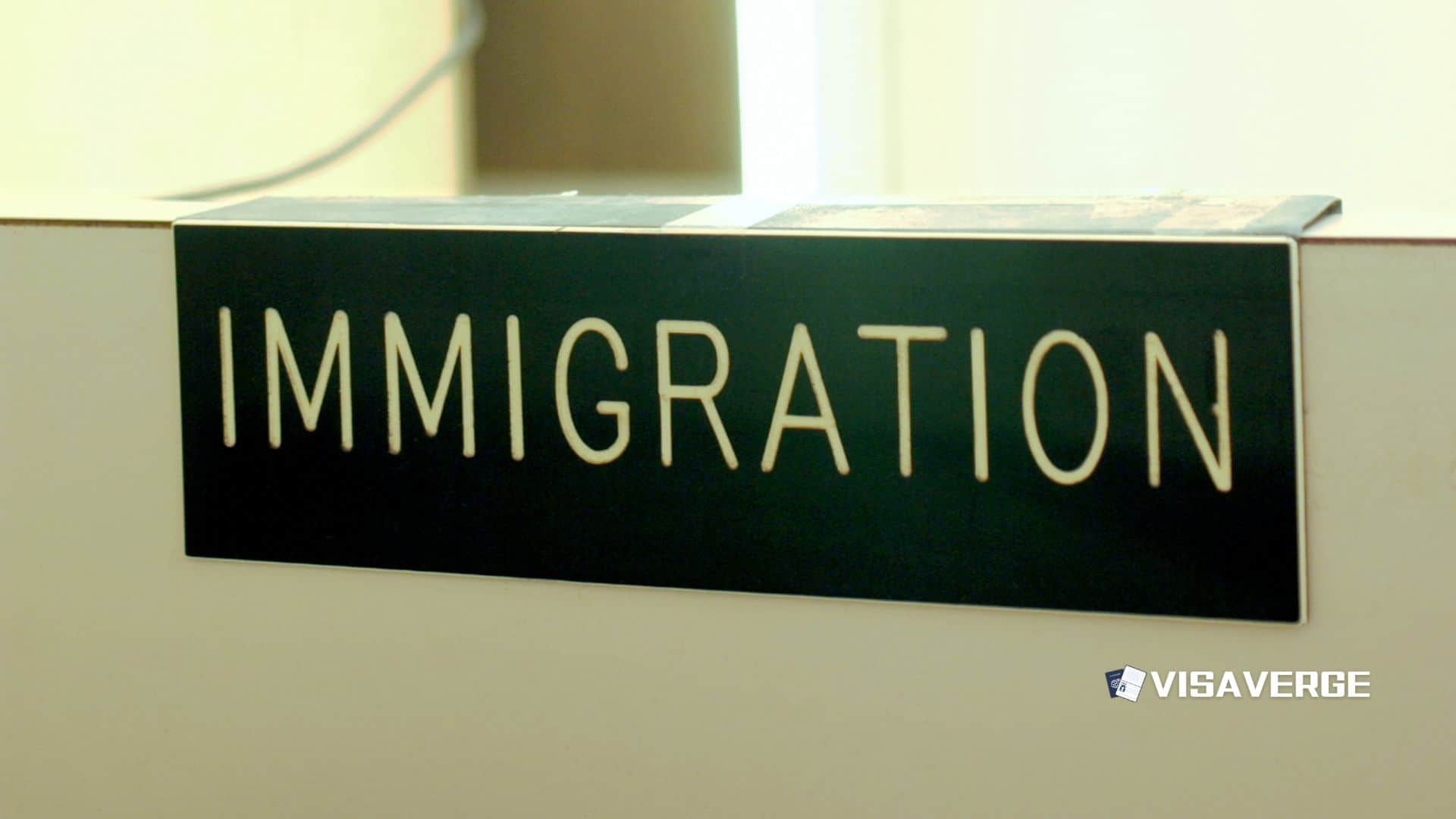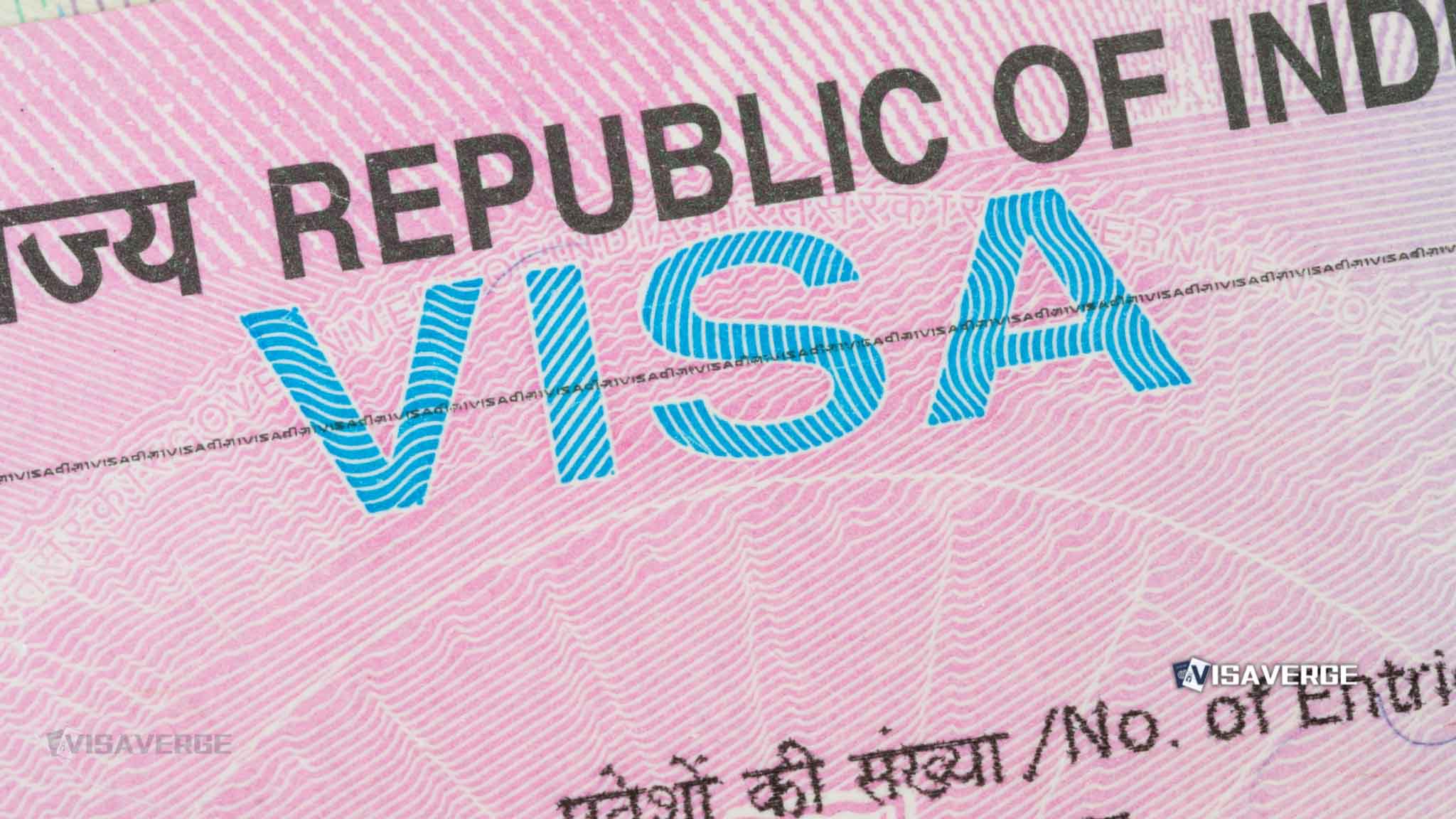Key Takeaways
• As of June 30, 2025, DOJ expands denaturalization to include national security and fraud offenses.
• Civil denaturalization cases do not guarantee legal representation, raising due process concerns.
• A dedicated DOJ section now prioritizes prosecuting serious crimes and immigration fraud among naturalized citizens.
As of June 30, 2025, the United States 🇺🇸 Department of Justice (DOJ) under President Trump has issued a sweeping new directive that could reshape the lives of thousands of naturalized Americans. The policy, which expands the government’s power to strip citizenship from those found guilty of a broader range of criminal offenses or immigration-related fraud, has sparked intense debate among legal experts, advocacy groups, and immigrant communities across the country.
Trump Administration Expands Denaturalization Efforts

The latest DOJ memo, released in late June, marks a significant shift in how the United States 🇺🇸 approaches the citizenship status of naturalized Americans. The memo broadens the types of crimes that can lead to denaturalization, now including:
- National security violations
- Fraud against individuals or government programs (such as Paycheck Protection Program loan fraud, Medicaid, or Medicare fraud)
- Other serious offenses
Perhaps most notably, the memo gives U.S. attorneys wide discretion to decide which cases to pursue. There are no longer strict limits on what types of crimes can trigger denaturalization. This means prosecutors can target cases they believe are important, even if the offenses do not fit into a narrow category.
According to analysis by VisaVerge.com, this expansion is part of a broader trend under President Trump’s administration to tighten immigration policies and increase scrutiny of both new and existing citizens.
Civil Proceedings Without Guaranteed Legal Representation
One of the most controversial aspects of the new directive is the clarification that civil denaturalization proceedings do not guarantee the right to an attorney. In criminal cases, defendants have the right to legal counsel, but in civil cases—like those involving denaturalization—this protection does not apply.
This means that naturalized Americans facing the loss of their citizenship may have to defend themselves in court without a lawyer, unless they can afford to hire one. Many legal experts and advocacy groups worry that this could lead to unfair outcomes, especially for those who lack the resources or knowledge to navigate complex legal proceedings.
Key Points:
– Civil denaturalization cases do not guarantee a lawyer
– Individuals must pay for their own legal defense or go without
– This raises concerns about fairness and due process
Creation of a Dedicated DOJ Section
To enforce the new policy, the Department of Justice has established a special section focused solely on investigating, prosecuting, and revoking the citizenship of naturalized Americans. This section will prioritize cases involving:
- Serious crimes such as sex offenses, war crimes, and terrorism
- Immigration fraud, including the use of multiple identities or hiding past deportation orders
The creation of this dedicated unit signals the administration’s commitment to ramping up denaturalization efforts. It also means that more resources and personnel will be devoted to reviewing old and new cases, increasing the likelihood that more naturalized Americans will come under scrutiny.
For official updates and policy memos, readers can visit the U.S. Department of Justice Civil Division website.
Historical Context: How Did We Get Here?
The roots of this policy go back to 2018, when President Trump’s administration first created a denaturalization task force. At that time, the focus was mainly on cases involving immigration fraud and national security threats. The goal was to identify individuals who had lied or hidden information during the naturalization process.
Since then, the scope of denaturalization has steadily grown. The 2025 memo represents the most significant expansion yet, allowing prosecutors to target a much wider range of offenses. This move fits into a larger pattern of efforts by the Trump administration to restrict immigration and tighten citizenship rules.
In January 2025, President Trump also issued an executive order aimed at restricting birthright citizenship for children born in the United States 🇺🇸 to certain non-citizen parents. The order, which took effect on February 19, 2025, has faced legal challenges but remains a key part of the administration’s immigration agenda.
Supreme Court Backs Administration’s Approach
Adding to the momentum behind these changes, the Supreme Court recently ruled (6-3) to limit nationwide injunctions that had been blocking President Trump’s executive order on birthright citizenship. This decision narrows the power of lower courts to stop the enforcement of federal policies across the entire country.
By making it harder for judges to block new rules, the Supreme Court’s ruling could make it easier for the administration to enforce its expanded denaturalization and citizenship policies. Legal experts say this decision could have far-reaching effects on how quickly and widely new immigration rules are put into practice.
What Does This Mean for Naturalized Americans?
For the nearly 23 million naturalized Americans living in the United States 🇺🇸, the new DOJ directive brings a wave of uncertainty and concern. Here’s how the changes could affect individuals and families:
1. Wider Range of Offenses Can Trigger Denaturalization
Before this memo, denaturalization was mostly limited to cases involving serious crimes like terrorism or clear immigration fraud. Now, offenses such as financial fraud (including misuse of government programs) and other serious crimes can also lead to citizenship being revoked.
2. No Guaranteed Legal Representation
Because denaturalization cases are civil, not criminal, those accused do not have the right to a government-appointed lawyer. This can make it much harder for people to defend themselves, especially if they cannot afford private legal help.
3. Increased Investigations and Prosecutions
With a dedicated DOJ section and broader criteria, more naturalized Americans may find themselves under investigation. Even minor infractions could, in some cases, trigger a review of someone’s citizenship status.
4. Potential for Unequal Treatment
Legal scholars and advocacy groups warn that these changes could create a “second class” of citizens. Naturalized Americans may feel less secure in their status, knowing that their citizenship can be challenged more easily than that of those born in the United States 🇺🇸.
5. Family and Community Impact
Losing citizenship can have devastating effects—not just for the individual, but for their families and communities. It can lead to loss of jobs, separation from loved ones, and even deportation to a country they may not have lived in for decades.
Expert and Advocacy Group Reactions
The response from legal experts and advocacy organizations has been swift and critical. Sameera Hafiz, Policy Director at the Immigration Legal Resource Center, called the expansion “very shocking and very concerning.” She emphasized the risk of creating unequal protections for different groups of citizens.
Other legal scholars point out that giving prosecutors such wide discretion could lead to inconsistent and possibly unfair outcomes. Some DOJ attorneys, speaking anonymously, have expressed worries that the new rules could be used too broadly, even for minor offenses.
Advocacy groups are also concerned about the lack of due process protections. Without guaranteed legal representation, many fear that vulnerable individuals will be unable to defend themselves effectively.
Policy and Legal Implications
The expanded denaturalization policy raises several important legal and civil rights questions:
- Due Process: Does denying the right to an attorney in civil denaturalization cases violate basic fairness?
- Equal Protection: Are naturalized Americans being treated as “second class” citizens compared to those born in the United States 🇺🇸?
- Prosecutorial Discretion: Could the broad authority given to DOJ attorneys lead to arbitrary or discriminatory enforcement?
- Judicial Oversight: With the Supreme Court limiting nationwide injunctions, will there be enough checks on executive power?
These questions are likely to be at the center of ongoing legal challenges and public debate in the months ahead.
Implications for Stakeholders
For Naturalized Americans
- Increased Risk: Even long-time citizens could face denaturalization if accused of certain crimes or fraud.
- Legal Vulnerability: Without guaranteed legal help, defending against denaturalization is much harder.
- Uncertainty: Many may feel less secure in their citizenship status.
For Immigrant Communities
- Fear and Distrust: The policy may create fear among immigrants, discouraging them from seeking citizenship or reporting crimes.
- Community Impact: Families and communities could be torn apart if members lose their citizenship.
For Employers and Schools
- Workforce Stability: Employers may worry about the status of employees who are naturalized citizens.
- Student Concerns: Schools and universities may see increased anxiety among students from immigrant backgrounds.
For Legal Professionals
- Increased Caseload: Immigration lawyers and advocacy groups are likely to see more requests for help.
- Resource Strain: Many organizations may struggle to meet the demand for legal assistance.
What Should Affected Individuals Do?
If you are a naturalized American and are concerned about your status, here are some practical steps to consider:
- Stay Informed: Follow updates from the DOJ and reputable immigration organizations.
- Review Your Records: Make sure all your immigration documents are accurate and up to date.
- Seek Legal Advice: If you are contacted by authorities or believe you may be at risk, consult an immigration attorney as soon as possible.
- Know Your Rights: Understand the difference between civil and criminal proceedings, and what protections you do and do not have.
- Connect with Advocacy Groups: Organizations like the Immigration Legal Resource Center can provide information and support.
Looking Ahead: Future Developments
The DOJ is expected to increase denaturalization cases in the coming months, using its expanded authority. At the same time, legal challenges and advocacy efforts are likely to grow, as civil rights groups push back against what they see as unfair or discriminatory policies.
The Supreme Court may play a key role in shaping the future of denaturalization powers. Further decisions could either limit or expand the government’s ability to revoke citizenship. Congress could also step in with new laws to clarify or change the rules.
Tracking the real-world impact of these changes will be important. Statistics on how many cases are filed, who is affected, and what outcomes result will help paint a clearer picture of the policy’s effects.
Official Resources and Where to Get Help
For the most up-to-date information on denaturalization policies and procedures, visit the U.S. Department of Justice Civil Division website. This site provides official memos, announcements, and contact information for those seeking guidance.
If you need legal help or want to learn more about your rights, organizations like the Immigration Legal Resource Center offer resources and support. Many local legal aid groups and immigration law centers can also provide advice and representation.
Conclusion
The Trump administration’s expanded denaturalization directive marks a major change in how the United States 🇺🇸 treats naturalized Americans. By broadening the range of offenses that can lead to citizenship loss and removing the guarantee of legal counsel in civil proceedings, the policy raises serious questions about fairness, due process, and equal protection.
As reported by VisaVerge.com, the coming months will be critical in determining how these changes play out in practice. Legal challenges, advocacy efforts, and further court decisions will all shape the future of citizenship rights in the United States 🇺🇸.
For now, naturalized Americans and their families face a period of uncertainty and concern. Staying informed, seeking legal advice, and connecting with trusted organizations are the best ways to protect your rights and prepare for any changes ahead.
Learn Today
Denaturalization → Legal process removing U.S. citizenship from naturalized individuals due to fraud or serious offenses.
Discretion → Authority given to prosecutors to decide which denaturalization cases to pursue without strict limits.
Civil Proceedings → Non-criminal legal cases where accused individuals may lack guaranteed legal representation.
Executive Order → A directive issued by the President to manage government operations and policies.
Nationwide Injunctions → Court orders blocking federal policies across the entire country, recently limited by Supreme Court.
This Article in a Nutshell
The DOJ’s June 2025 directive expands grounds for denaturalization and removes guaranteed legal counsel in civil cases, increasing risks for naturalized Americans amid broader immigration tightening and Supreme Court backing.
— By VisaVerge.com








